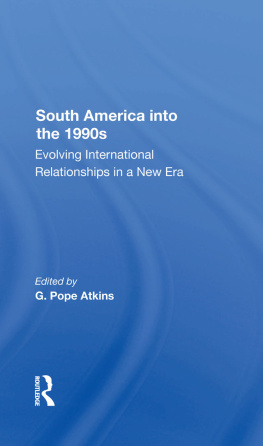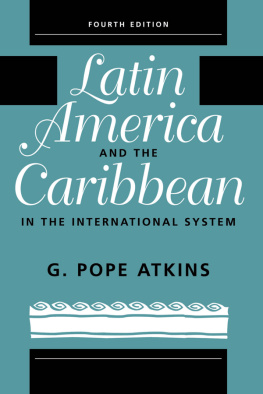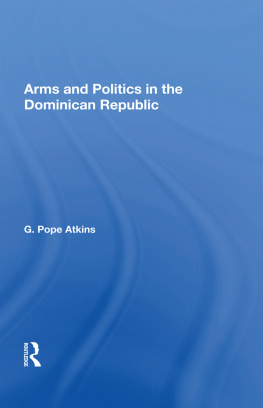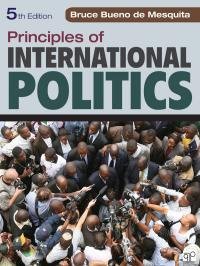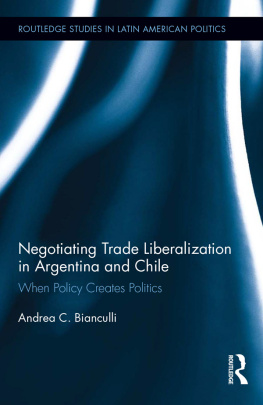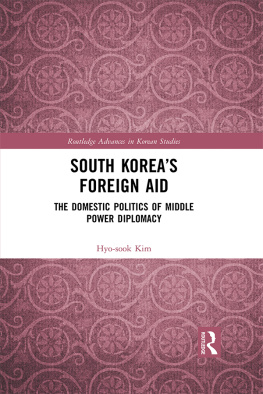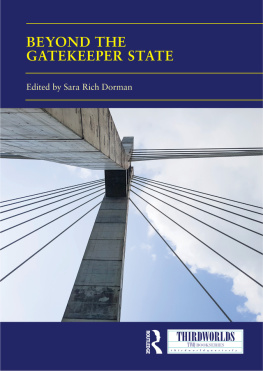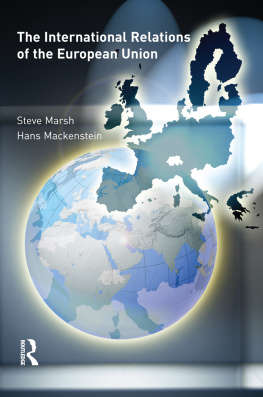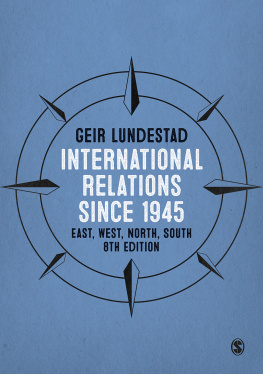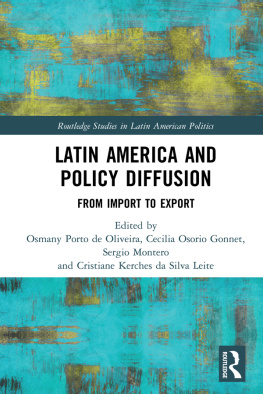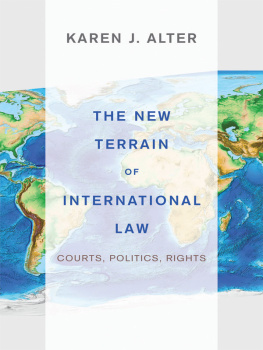South America into the 1990s
Published in cooperation with the Center for Strategic and International Studies Washington, D.C.
South America into the 1990s
Evolving International Relationships in a New Era
Edited by
G. Pope Atkins
First published 1990 by Westview Press, Inc.
Published 2019 by Routledge
52 Vanderbilt Avenue, New York, NY 10017
2 Park Square, Milton Park, Abingdon, Oxon OX14 4RN
Routledge is an imprint of the Taylor & Francis Group, an informa business
Copyright 1990 by the Center for Strategic and International Studies
All rights reserved. No part of this book may be reprinted or reproduced or utilised in any form or by any electronic, mechanical, or other means, now known or hereafter invented, including photocopying and recording, or in any information storage or retrieval system, without permission in writing from the publishers.
Notice:
Product or corporate names may be trademarks or registered trademarks, and are used only for identification and explanation without intent to infringe.
Library of Congress Cataloging-in-Publication Data
South America into the 1990s: evolving international relationships in a New Era / edited by G. Pope Atkins.
p. cm.
ISBN 0-8133-7515-0
1. South AmericaForeign relations1948- . I. Atkins, G. Pope, 1934
F2237.S68 1990
327.68'009'049dc20
89-48772
CIP
ISBN 13: 978-0-367-28795-5 (hbk)
Contents
, G. Pope Atkins
, Howard J. Wiarda
, Jack Child
, Wayne A. Selcher
, Morris J. Blachman
, Georges A. Fauriol
, William Guttman
, Wolf Grabendorff and Roberto Russell
The altered international and domestic circumstances of South America require a reevaluation of that region's international relations. The geographic scope of the subject is defined as South America beyond the Circum-Caribbean, excluding the states of Colombia, Venezuela, Guyana, and Suriname. The region thus definedessentially what is often called the Southern Cone of South America and Brazilforms an international subsystem with distinct characteristics that present special challenges to the various state and nonstate actors involved, both inside and outside the region. Although a great deal of attention over the past decade has been focused on events in Mexico and the Caribbean area, particularly Central America, South America beyond the Caribbean has received comparatively little consideration by both analysts and policymakers. This is unfortunate considering the sheer weight of South American states, the magnitude of the problems they and their external partners face, and the profound changes that are occurring in the region.
This book undertakes a multifaceted examination of South American international relations. Emphasis is placed on the continent's new era of domestic and international politics and the implications of the evolving South American environment for the policies of the many actors participating in the region's international politics. It grows out of a program of research, analysis, and discussion under the auspices of the Center for Strategic and International Studies supported by a grant from the Tinker Foundation.
A basic premise of this study is that profound changes in the South American subsystem and in its relationships with the outside world require fundamental reevaluation on the part of the United States. The region has grown dramatically in importance and represents a pressing set of items on the U.S. foreign policy agendafragile democratization, external debt crisis, domestic economic development management, and the traffic in narcotics (which also holds the dangers of narco-terrorism) being only the most obvious among them. The rapid pace of regional transformation, however, has outgrown the quality of attention that the United States has devoted to the area.
The authors of this study share a recognition of the importance of South America to U.S. interests and a desire for the United States to pursue an effective policy on the continent. They also agree that an effective pursuit of U.S.-South American relations requires a revitalized agenda that takes into account not only regional realities but also the implications of a South America now increasingly part of a wider global community. The chapters in this volume draw out various dimensions of the new South American environment and outline the interests and actions of the broad array of key regional and external actors.
A variety of substantive topics are taken up by a recognized authority in each instance. The authors take a common approach inasmuch as each makes some general conceptual commentary about the particular theme being pursued, compares the situation in the 1980s with that of the 1960s and 1970s in terms of both continuity and change, and identifies trends that seem likely to project into the 1990s. Other than that, however, all of the analysts have been encouraged to bring to bear individual expertise and experience with no prescribed conformity or orthodoxy of interpretation, conclusion, or prescription. Given the breadth of the subject examined and the dearth of relevant up-to-date materials, the research and writing tasks were undertaken on an individual basis.
As in any complex endeavor, the credit for bringing the book to a successful completion rests with several individuals and institutions. The Center for Strategic and International Studies and its Latin American Program provided a hospitable environment in which to undertake this kind of initiative. The technical support provided at the Center by Mary Donlan, Patricia Pickerall, and Carmen Pinelli in particular must be noted. Virginia Atkins Wilson drew the map. The editor thanks especially the Tinker Foundation, whose financial support was instrumental in the carrying out of the project. Ultimately, however, this book is the result of the professionalism, patience, and cooperation of the individual authors.
G. Pope Atkins
G. Pope Atkins is Professor of Political Science at the United States Naval Academy and Senior Associate in Latin American Studies at the Center for Strategic and International Studies (CSIS). He has written extensively on Latin American international and comparative politics, including Latin America in the International Political System (2d ed., 1989). Dr. Atkins has been a visiting professor or researcher with the Institute for Latin American Studies at the University of London, El Fondo para el Avance de las Ciencias Sociales in Santo Domingo, the International Relations Department of the London School of Economics and Political Science, and other institutions.
Morris J. Blachman is Professor of Government and International Studies at the University of South Carolina, where he chairs the Coordinating Council for the Western Hemisphere in the James F. Byrnes International Center and serves as Associate Director of the Institute of International Studies. He is also Associate Director of Regions of the International Studies Association, headquartered at the university. Dr. Blachman has written widely on U.S. policy toward Latin America, including the editing of two books dealing with the subject.
Jack Child is Professor of Languages and Area Studies at The American University and former Associate Dean of the School of International Service. Born in Argentina, he pursued a career in the U.S. Army as a foreign area specialist officer in the Latin American region; his last assignment was on the faculty of the Inter-American Defense College. Among his many writings, Dr. Child is the author of Geopolitics and Conflict in South America (1985) and Antarctica and South American Geopolitics (1988).

